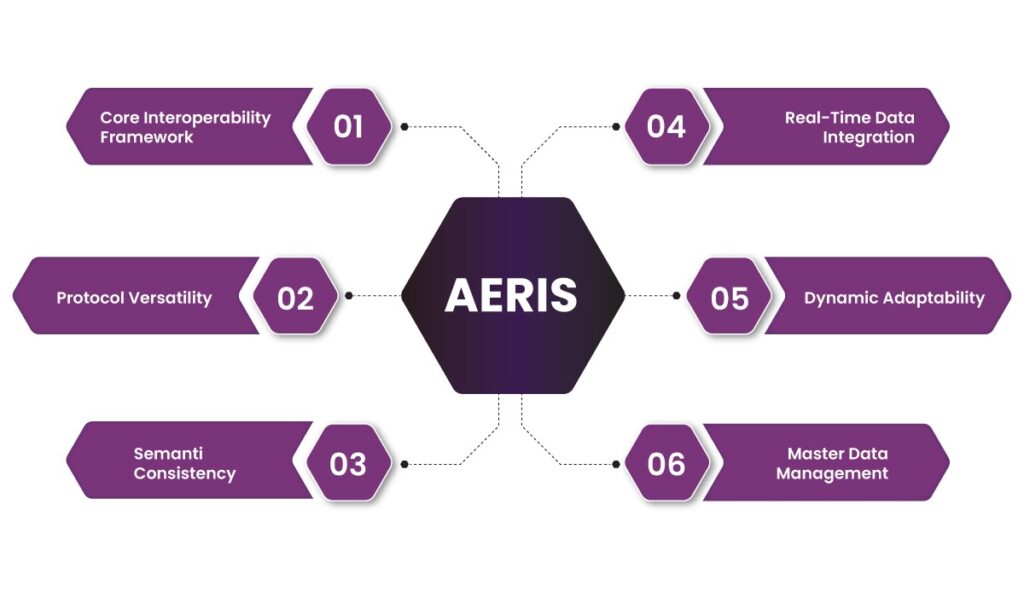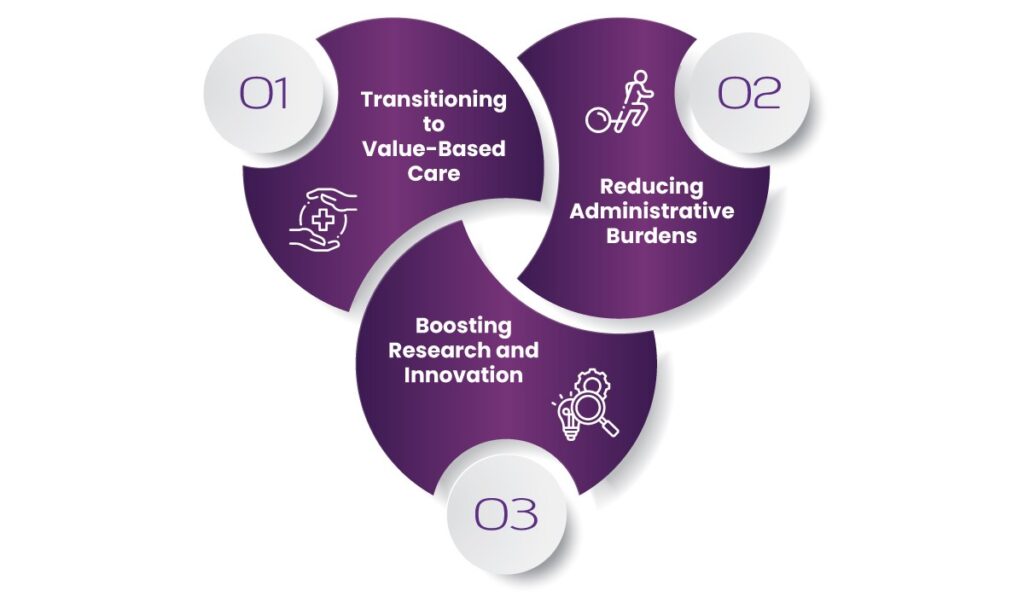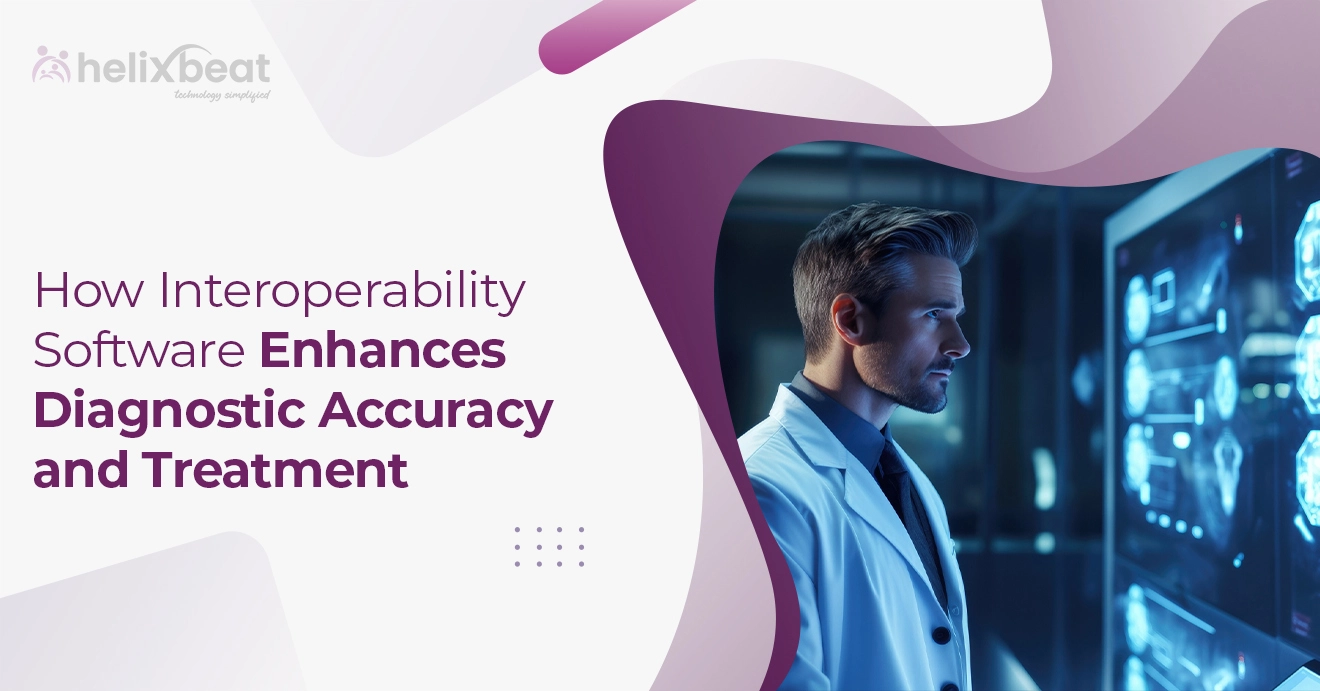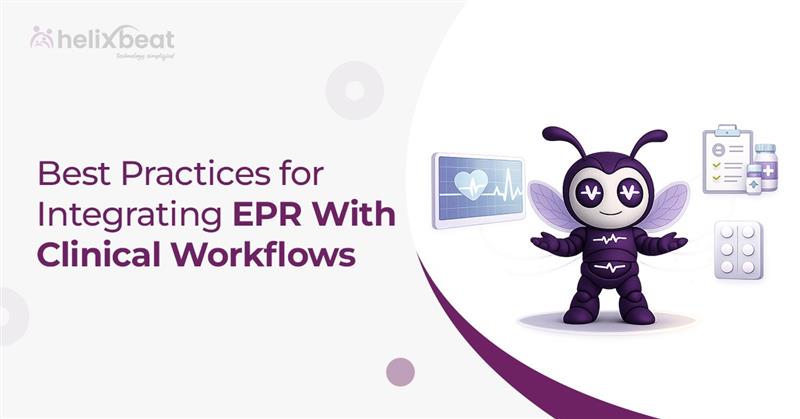Imagine this: a 65-year-old man visits his local clinic, struggling with recurring headaches and blurred vision. Suspecting a neurological issue, the doctor faces a critical challenge – a lack of immediate access to crucial medical information.
Now, imagine the same scenario, but the clinic uses interoperability software this time. The attending physician effortlessly retrieves the patient’s comprehensive medical history, including a recent MRI conducted at a specialist center in another state. Within minutes, the system retrieves the imaging and related reports, revealing early signs of a brain aneurysm. This timely access to critical information allows the physician to refer the patient for specialized care immediately. The neurologist, already having access to the patient’s records through the same platform, reviews the data and initiates a timely treatment plan.
This scenario highlights the potential of interoperability. In this blog, let’s explore how interoperability software like AERIS is reshaping the healthcare landscape and delivering outcomes that were once unimaginable.
Table of Contents
The Complications of Modern Healthcare
Modern healthcare is like a puzzle with missing pieces. Providers often grapple with fragmented data spread across electronic health records (EHRs), lab results, imaging reports, and patient histories. This lack of integration makes it difficult for healthcare providers to create a complete and accurate picture of a patient’s medical background. These silos don’t just slow down processes; they can lead to delays in treatment or even misdiagnoses.
Therefore, modern healthcare requires a unified view of patient data to facilitate timely, precise, and personalized treatment.
How Interoperability Software AERIS Enhances Diagnostic Accuracy Through Data Integration
AERIS, developed by HelixBeat, is a robust solution built to support seamless and adaptable real-time data sharing across diverse platforms, systems, and organizations. It is designed to accommodate varying data formats, protocols, and requirements, thus supporting interoperability and flexibility. This capability is especially vital in industries like healthcare, where the need for real-time, accurate, and reliable data exchange is highly important for operational efficiency and decision-making.
Here’s a closer look at how AERIS enhances diagnostic precision by uniting disparate healthcare systems into a cohesive data-sharing ecosystem.
1. Core Interoperability Framework
AERIS leverages HL7 FHIR, the global gold standard in healthcare interoperability, to facilitate structured and consistent data exchange. This eliminates the friction often caused by incompatible data formats, thus providing a smooth flow of critical information across systems.
2. Protocol Versatility
Healthcare systems often operate on varying technological frameworks, from legacy setups to cloud-based platforms. AERIS bridges these gaps with support for multiple protocols like HTTP, FTP, MQTT, and SOAP. For example, with AERIS, an older radiology system in a rural hospital can connect effortlessly with a state-of-the-art cloud-based analytics platform in a metropolitan center.
3. Semantic Consistency
Accurate diagnoses depend on the precise interpretation of medical data. AERIS employs standardized terminologies to align data definitions across systems. Consider lab results stored in different units or terminologies across platforms—AERIS harmonizes these discrepancies so clinicians can make data-driven decisions without second-guessing interpretations.
4. Real-Time Data Integration
Timely access to patient information is critical in high-stakes medical scenarios. AERIS facilitates real-time data exchange that can be life-saving. For example, when a patient undergoes a CT scan, the results are instantly transmitted to the referring physician’s system, which helps in rapid diagnosis and intervention. This immediate data transfer is particularly vital in emergencies, such as stroke management, where every second counts. By eliminating delays associated with manual data sharing or siloed systems, AERIS enhances the speed and accuracy of diagnoses.
5. Dynamic Adaptability
The healthcare industry is ever-evolving, with new diagnostic tools and devices constantly emerging. Due to its plug-and-play modularity, AERIS can seamlessly integrate these advancements into existing workflows. Imagine a hospital adopting a cutting-edge AI-powered diagnostic tool. Instead of overhauling the entire IT infrastructure, AERIS dynamically incorporates the new system into the network. This capability allows healthcare providers to leverage the latest innovations without disruptions, thus driving both operational efficiency and diagnostic accuracy.
6. Master Data Management
Duplicate records or inconsistent patient information can delay diagnostic errors or treatment. However, the Master Data Management (MDM) system in AERIS consolidates patient data across the organization into a single, reliable source. For example, a patient visiting multiple departments within a hospital can have their data unified under one identifier. This streamlined approach avoids confusion caused by duplicate entries or outdated records and enhances collaboration between departments.

How AERIS Aligns with U.S. Healthcare Goals
Here’s how the interoperability software AERIS directly contributes to improving the quality, accessibility, and efficiency of healthcare services.
1. Transitioning to Value-Based Care
The U.S. healthcare system is steadily moving to value-based care models that prioritize patient outcomes. By integrating data from various sources—like electronic health records (EHRs), wearable devices, and lab systems—AERIS provides healthcare providers with a comprehensive view of a patient’s health journey. This shift not only improves patient care but also optimizes resource utilization and aligns with the broader goals of healthcare reform.
2. Reducing Administrative Burdens
The U.S. healthcare system is notorious for its administrative complexities, which consume significant time and resources. Interoperable software AERIS simplify these processes by:
- Improving medical data accuracy by minimizing manual input.
- Automating data transfer between different stakeholders like insurance providers and healthcare facilities.
- Facilitating patient data access and empowering individuals to participate in their care actively.
3. Boosting Research and Innovation
Interoperable systems also accelerate medical research by making de-identified patient data more accessible to researchers. This expanded access enables:
- Faster drug development by analyzing trends across large datasets.
- Insights into treatment efficacy across diverse patient populations.

Final Words
As healthcare systems in the U.S. aim for value-based care, interoperability software like AERIS emerges as a cornerstone of this transformation. It equips providers with the tools to deliver accurate diagnoses, effective treatments, and exceptional patient experiences. By breaking down data silos, boosting collaboration, and leveraging cutting-edge technology, interoperability is not just enhancing healthcare—it’s redefining it.
Whether you’re a clinician, a hospital administrator, or a patient, the benefits of interoperability are clear. It’s not just about connecting systems; it’s about connecting people to better care faster and smarter.
FAQs
1. What is interoperability software, and why is it important in healthcare?
Interoperability software allows different healthcare systems, such as electronic health records (EHRs) and diagnostic tools, to communicate and share data seamlessly. This integration helps improve diagnostic accuracy, treatment planning, and overall healthcare efficiency.
2. How does interoperability improve diagnostic accuracy?
Interoperability unifies data from various sources, providing healthcare providers with a complete view of a patient’s medical history. This holistic access reduces the chances of misdiagnosis and facilitates timely, data-driven decisions.
3. What role does AERIS play in streamlining healthcare operations?
AERIS facilitates real-time data exchange across systems, supports multiple communication protocols, standardizes medical terminologies, and consolidates patient information. These features improve operational efficiency and enhance care delivery.
4. How does interoperability software support value-based care?
Interoperability enables providers to access comprehensive patient data, thus helping them focus on health outcomes rather than the number of services provided. This shift aligns with the principles of value-based care by improving resource utilization and patient experiences.
5. Can interoperability software help reduce healthcare inequities?
Yes, interoperability bridges gaps between healthcare facilities in urban and rural areas by enabling seamless data sharing. This connectivity improves access to specialized care and reduces disparities in healthcare quality.
6. What are the technical features of AERIS that make it unique?
AERIS supports global interoperability standards like HL7 FHIR, adapts to various communication protocols (e.g., HTTP, FTP, MQTT), integrates new technologies through plug-and-play modules, and maintains semantic consistency for accurate data interpretation.
7. How does interoperability software support medical research and innovation?
Interoperability makes de-identified patient data accessible for analysis, enabling faster drug development, more efficient clinical trials, and insights into treatment effectiveness across diverse populations.
8. What challenges does interoperability address in healthcare systems?
Interoperability eliminates data silos, facilitates real-time information sharing, reduces administrative burdens, and enhances collaboration among healthcare providers, all of which contribute to better patient care.













